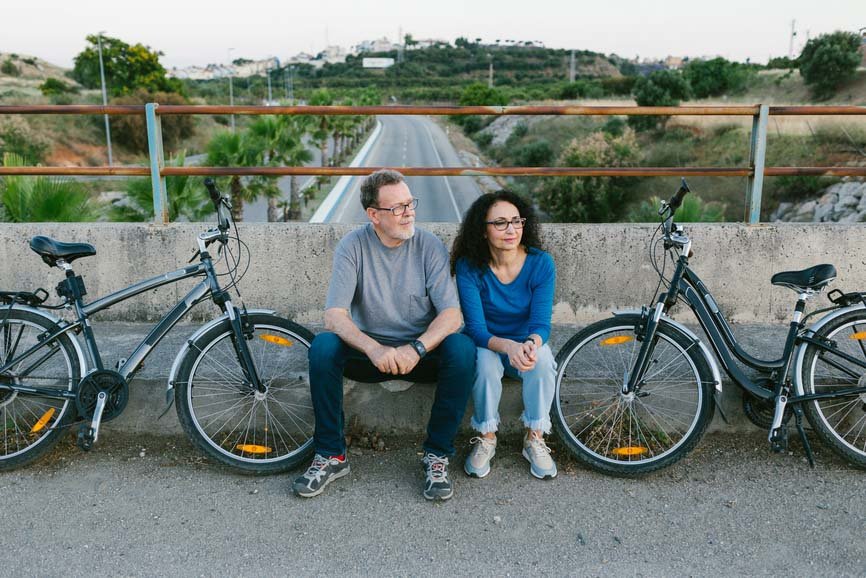It used to be that we compared ourselves to the neighbors.
You know — the Joneses with the shiny new car, freshly mowed lawn, and the perfectly polite kids who never seemed to cry or throw toast at dinner. Even that comparison, while unfair, was limited to what you could see out your window or around your neighborhood.
But today? We compare our relationships to strangers on the internet — to perfectly edited reels, curated couples photos on Instagram, and scripted TikToks designed to give the illusion of spontaneous romance.
And that comparison is costing us more than we realize.
What You’re Seeing Isn’t Reality
Let’s get something straight: most of what we see online is performance.
Even when it’s labeled “real talk” or “authentic,” it’s still been rehearsed, edited, and filtered. The lighting is better than your bedroom lighting. The conversation has been cut to show only the best or most emotionally engaging parts. Even vulnerability can be polished.
Yet it feels real — more real than movies or sitcoms ever did — because these clips and photos carry the air of authenticity. And when we’re tired, discouraged, or disconnected in our own relationships, it’s easy to start thinking:
“Why don’t we look like that?”
“They seem so in love — what’s wrong with us?”
“Why don’t we laugh like that anymore?”
What starts as a scroll turns into a subtle kind of despair.
The Psychology of Comparison
Social comparison is a natural human tendency. According to social psychologist Leon Festinger, we evaluate ourselves in part by comparing ourselves to others — it’s how we understand our own worth, choices, and identities.
But when comparisons are made against highly curated content or people who don’t share your history, values, or challenges, you end up measuring your relationship with the wrong ruler.
You’re not seeing the unresolved conflict they didn’t film.
Or the emotional shutdown that followed the “cute date night” post.
Or the therapy sessions, postpartum challenges, work stress, or trauma that never made it to the reel.
And here’s the real danger:
When you compare your raw footage to someone else’s highlight reel, your relationship will always feel lacking.
How It Damages Your Relationship
When you consistently measure your relationship against an idealized image, a few things start to happen:
You miss what’s working.
You might stop noticing your partner’s everyday gestures of care or the quiet ways you show up for each other.You create unrealistic expectations.
Your partner isn’t a scriptwriter, a professional actor, or a social media producer. They’re a real human being with real emotional limits.You avoid facing your unique challenges.
Instead of dealing with what’s hard in your relationship, you start to believe you shouldn’t be having a hard time — which adds shame to the mix.
So What Can You Do Instead?
Here’s what I often tell couples I work with:
Your relationship is not a product to be compared. It’s a living, breathing emotional system that needs care, not judgment.
Here are a few ways to shift out of comparison mode and into connection:
Recognize the illusion.
Just like you wouldn’t compare your real marriage to a rom-com, don’t compare it to a “day in the life” TikTok. Curated doesn’t equal real.Practice gratitude for the imperfect.
What’s working in your relationship today? What small moments brought you comfort, even if they weren’t Instagram-worthy?Talk to your partner about what connection looks like — for you.
Real connection might not look like surprise helicopter dates. It might look like watching your kid sleep while the dishes are still in the sink.Reclaim your rituals.
If you’re feeling disconnected, try creating your own daily or weekly ritual of connection — even if it’s just a walk, a question, or 10 minutes before bed. This blog post on the power of rituals is a great place to start.Notice when you feel envy — and turn it into inquiry.
Instead of letting envy become shame, ask yourself: What is this showing me that I want more of? Connection? Affection? Playfulness? Then bring that into the conversation with your partner.
Final Thought: You Don’t Need to Look Like Them
Your relationship doesn’t need to look like anyone else’s to be meaningful, connected, or strong.
What matters isn’t whether your love fits someone else’s aesthetic — it’s whether you and your partner feel safe, known, and supported by each other.
So if you’re stuck comparing, take a moment to log off and tune in.
What does your relationship need today?
What might happen if you stopped measuring and started nurturing?
If you'd like help shifting out of comparison and into connection, I'm here to support you. Feel free to call me at 612-230-7171, contact me through my contact page, or schedule an online consultation.



